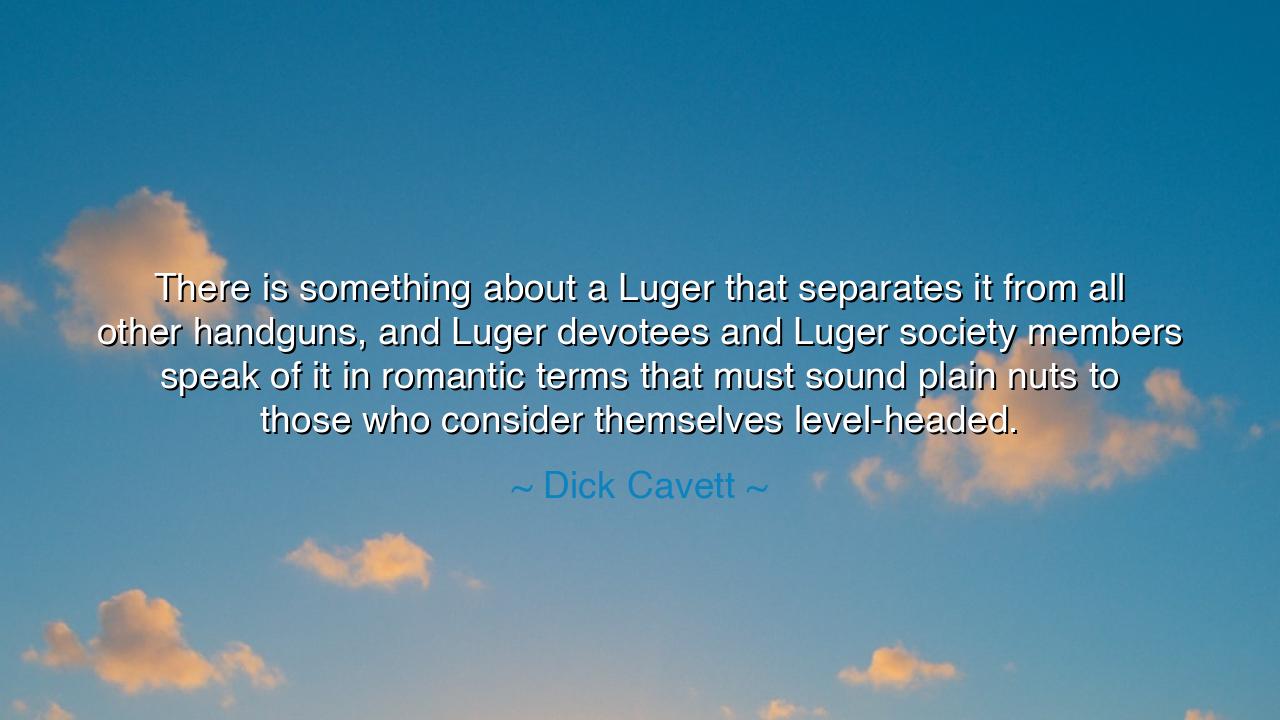
There is something about a Luger that separates it from all other
There is something about a Luger that separates it from all other handguns, and Luger devotees and Luger society members speak of it in romantic terms that must sound plain nuts to those who consider themselves level-headed.






The words of Dick Cavett—“There is something about a Luger that separates it from all other handguns, and Luger devotees and Luger society members speak of it in romantic terms that must sound plain nuts to those who consider themselves level-headed”—carry with them the weight of paradox: how an instrument of war, forged for destruction, could inspire such romantic devotion. In them we glimpse a truth of human nature: that beauty and danger often intertwine, that form and function together can capture the imagination, and that what is feared by some may be revered by others.
The origin of this fascination lies in the history of the Luger pistol, also known as the Parabellum. Designed in Germany at the turn of the twentieth century, it was not only a weapon but also a marvel of craftsmanship. Its sleek lines, its distinctive toggle-lock mechanism, and the elegance of its engineering set it apart from the blunt utilitarianism of other handguns. To hold it was to sense precision, artistry, and menace combined. Thus, to its devotees, the Luger became more than a tool—it became a symbol, a relic of an era, an object of romance cloaked in steel.
History reminds us that objects of war often carry such duality. Consider the samurai sword, the katana of Japan. To outsiders, it was but a blade meant to kill. But to the samurai, it was the soul of their honor, the very extension of their being. It was polished, revered, and passed down through generations. Outsiders may have thought such reverence “plain nuts,” but within the culture it carried profound meaning. So too with the Luger: to its devotees it embodies not just violence, but art, heritage, and the romance of history.
Cavett’s words also reveal the tension between passion and reason. To the level-headed, it seems madness to speak romantically of an implement of death. Yet passion often defies logic. It is not rational to love a storm, yet poets revere the tempest. It is not practical to cherish an ancient ruin, yet travelers cross continents to touch its stones. The romantic spirit sees beyond function into meaning, beyond fear into fascination. The Luger, in its mechanical elegance, becomes to some not merely a gun but an emblem of human ingenuity, discipline, and style.
The lesson for us is not to fall in love with weapons, but to recognize how humans romanticize objects, experiences, and ideas. Our hearts are drawn to what transcends the ordinary. This is why collectors treasure coins, why sailors cherish old ships, why scholars pore over ancient manuscripts. To one person, these things are worthless; to another, they are sacred. What seems “plain nuts” to the logical mind may in truth be a form of devotion, a search for meaning in what would otherwise be only material.
Practically, this calls us to look carefully at our own attachments. What objects, traditions, or ideas do you hold in romantic terms, and why? Ask yourself: does this devotion elevate your spirit, or does it bind you to shadows? For it is not wrong to revere an object, but wisdom lies in discerning whether that reverence leads to growth, beauty, or only to danger. The Luger may inspire fascination, but the wise heart must remember its true purpose was destruction. To romanticize without awareness is folly. To romanticize with understanding is the beginning of wisdom.
Thus, Cavett’s reflection is not merely about a pistol, but about the nature of reverence itself. Humans seek romance even in the unlikeliest of places—in steel, in stone, in fire. This is both our glory and our danger. It shows our capacity to see beauty where others see none, but also our risk of forgetting the darker truths.
So let this teaching endure: honor your passions, but temper them with clarity. Be not ashamed to see beauty in what others call madness, but never forget the essence of the thing you admire. For in the balance between fascination and wisdom lies the path of the true seeker—the one who can marvel at the craftsmanship of the Luger while never forgetting the thunder it was designed to unleash.






AAdministratorAdministrator
Welcome, honored guests. Please leave a comment, we will respond soon